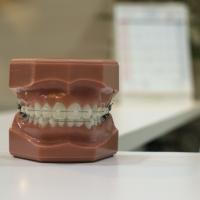Home > Blog > Diet and Fitness
Understanding the Connection Between Physical and Behavioral Health
In the United States, discussions about health often revolve around physical well-being—eating right, exercising, and managing chronic conditions. However, a vital aspect often overlooked is the intricate connection between physical health and behavioral health. This interconnectedness is crucial for a comprehensive understanding of overall wellness.
The Interconnection of Behavioral and Physical Health
Behavioral health encompasses mental health, emotional well-being, and the management of stress and psychological issues. It encompasses a wide range of conditions, from mood disorders like depression and anxiety to substance abuse and addiction. While these might seem distinct from physical health, they are deeply intertwined.
Impact of Mental Health on Physical Well-being
One significant aspect of this connection is the impact of mental health on physical health. Mental health conditions can manifest physically, leading to symptoms such as fatigue, headaches, digestive issues, and chronic pain. For instance, chronic stress can weaken the immune system, making individuals more susceptible to infections and diseases. Moreover, conditions like depression often coexist with chronic illnesses like diabetes and cardiovascular disease, exacerbating their symptoms and complicating treatment.
Conversely, physical health can profoundly affect mental well-being. Chronic pain, disability, or serious illness can lead to depression, anxiety, or other mental health disorders. The limitations imposed by physical conditions can strain relationships, disrupt daily activities, and erode self-esteem, contributing to feelings of isolation and hopelessness.
Lifestyle Factors and Their Dual Influence
Furthermore, lifestyle factors play a significant role in both physical and behavioral health. Poor diet, lack of exercise, substance abuse, and inadequate sleep not only increase the risk of physical ailments like obesity, diabetes, and heart disease but also impact mental health negatively. Nutritional deficiencies, for instance, can affect neurotransmitter function, influencing mood and cognitive function.
Social determinants of health also influence this connection. Factors such as socioeconomic status, access to healthcare, housing stability, and social support networks profoundly impact both physical and mental well-being. Individuals facing economic hardships or social isolation are more vulnerable to both physical and mental health problems.
Integrated Care Models: Holistic Approaches to Wellness
Recognizing and addressing the connection between physical and behavioral health is essential for improving overall wellness and quality of life. Integrated care models that consider both aspects of health are gaining traction in healthcare systems across the country. These models aim to provide holistic care by addressing the underlying factors contributing to a person's health issues.
Preventive measures are also crucial in promoting wellness on both fronts. Early intervention and screening for mental health conditions can prevent them from escalating and potentially impacting physical health. Similarly, addressing lifestyle factors through education, support, and access to resources can prevent the development of chronic diseases and mitigate their impact on mental well-being.
Promoting mental health awareness and reducing stigma surrounding mental illness is another important step. Encouraging open dialogue and providing support systems can empower individuals to seek help when needed, leading to earlier intervention and better outcomes.
Conclusion
In conclusion, understanding the connection between physical and behavioral health is essential for fostering holistic well-being. By recognizing how these aspects intersect and influence each other, individuals can take proactive steps to maintain their health and seek comprehensive care when needed. Ultimately, addressing both physical and behavioral health is crucial for achieving optimal wellness and improving quality of life in the United States.
If you are searching for an Akron addiction treatment center, choose Ray Recovery. We understand that recovery from addiction is an ongoing process and a journey of self-discovery. That’s why our recovery programs are tailored to each individual so that we can help them find the best path for their recovery.
More to Read:
Previous Posts:






